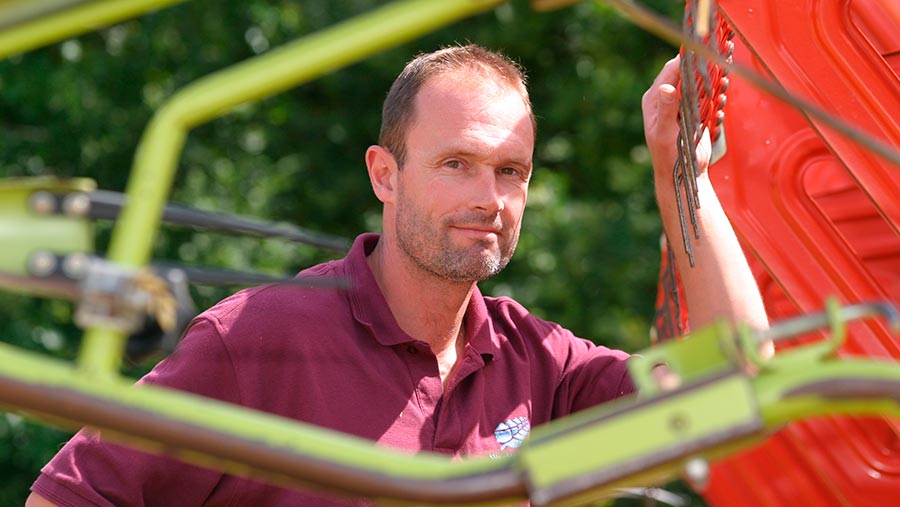Farmer Focus: Hopes of resilience in times of low grain prices
 Andy Barr ©Barry Wyles
Andy Barr ©Barry Wyles We are still waiting to start harvest with the oilseed rape or possibly the grass seed I am trying for the first time.
The latter looks like it might be a challenge, especially as the recent heatwave is now forecast to dissolve into showers.
Unfortunately, the vast majority of harvest reports I have heard so far are not giving me cause for optimism, with stories of barley with low specific weights and more swearing about giving up growing oilseed rape altogether.
See also: Read more from our Arable Farmer Focus writers
However, one grain of hope is that the very first trailerload of wheat just received into our local co-operative store does have a decent hectolitre weight, so fingers crossed.
The trouble is that a crop that is just decent won’t actually make any money; it will need to be extraordinary to do that. How long can we do this for?
Piling on more chemicals (with ever-decreasing effect) and more nitrogen in an effort to produce as many tonnes as possible from my tiny patch, when the whole reason we have low prices is that we are all producing too much, doesn’t seem entirely sustainable.
Yes, maybe it will only take one major weather issue somewhere and prices will bounce back and perhaps I’ll make some money for a year or two.
But I’d quite like to be a bit more resilient than that, while still doing what I love – growing crops and helping the environment. I hope that we will be following a very different system in 20 years’ time.
I also hope I’m not still waiting for part of my subsidy payment that hasn’t arrived and worrying that it will never arrive and that I am so reliant upon it.
I don’t like being attacked for receiving a payment that doesn’t seem to end up with me anyway.
Would people be happy if I received money for providing specific environmental goods that everyone agreed were wanted?
Or perhaps providing people with a link to nature, or adopting a more ecological approach and measurably increasing my sustainability, or even helping everyone to be fed without becoming unhealthy?
Andy Barr farms 700ha in a family partnership in Kent. Combinable crops amount to about 400ha and include milling wheat and malting barley in an increasingly varied rotation. He also grazes 800 Romney ewes and 40 Sussex cattle and the farm uses conservation agriculture methods.
Farmplan software

GateKeeper crop management software is designed to help growers with precision farming, data management, record keeping and traceability. Find out more.
